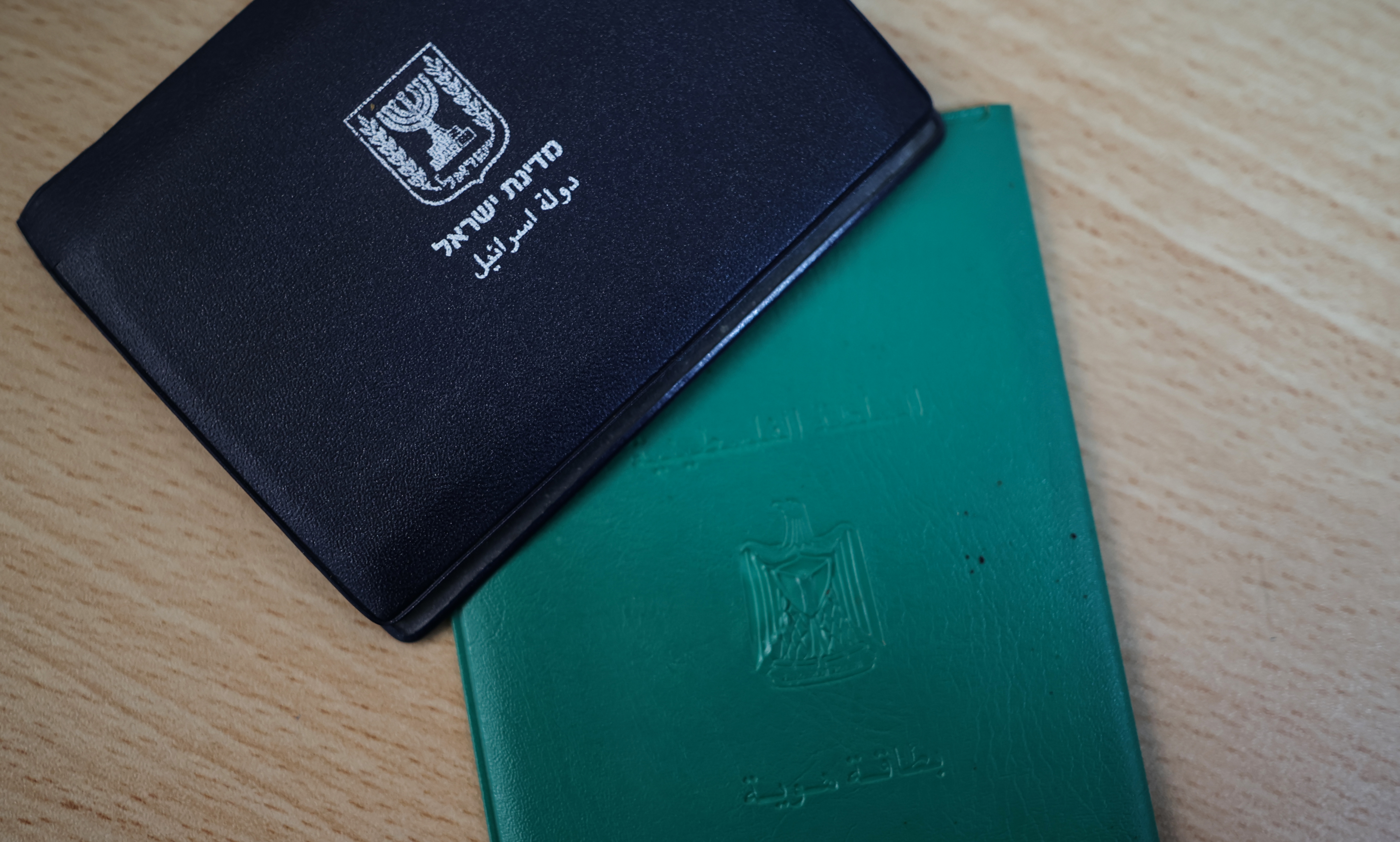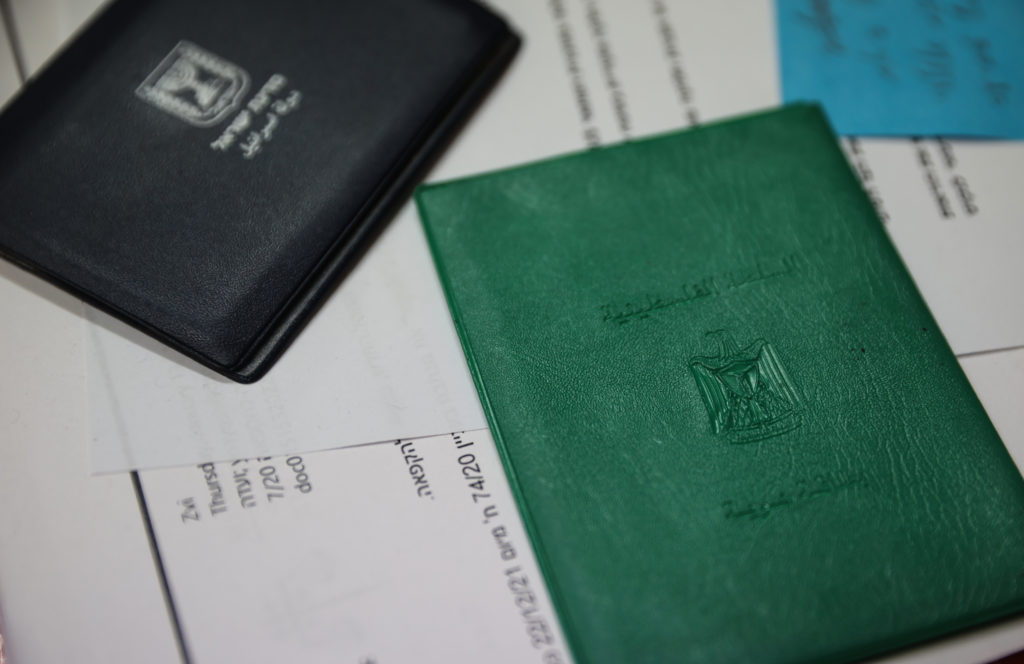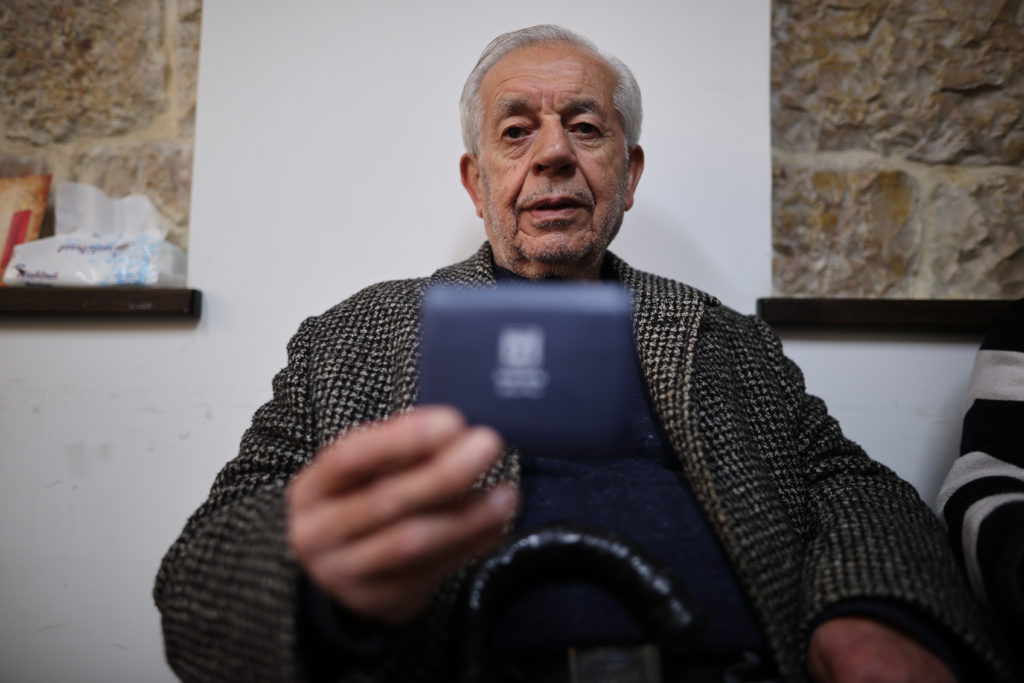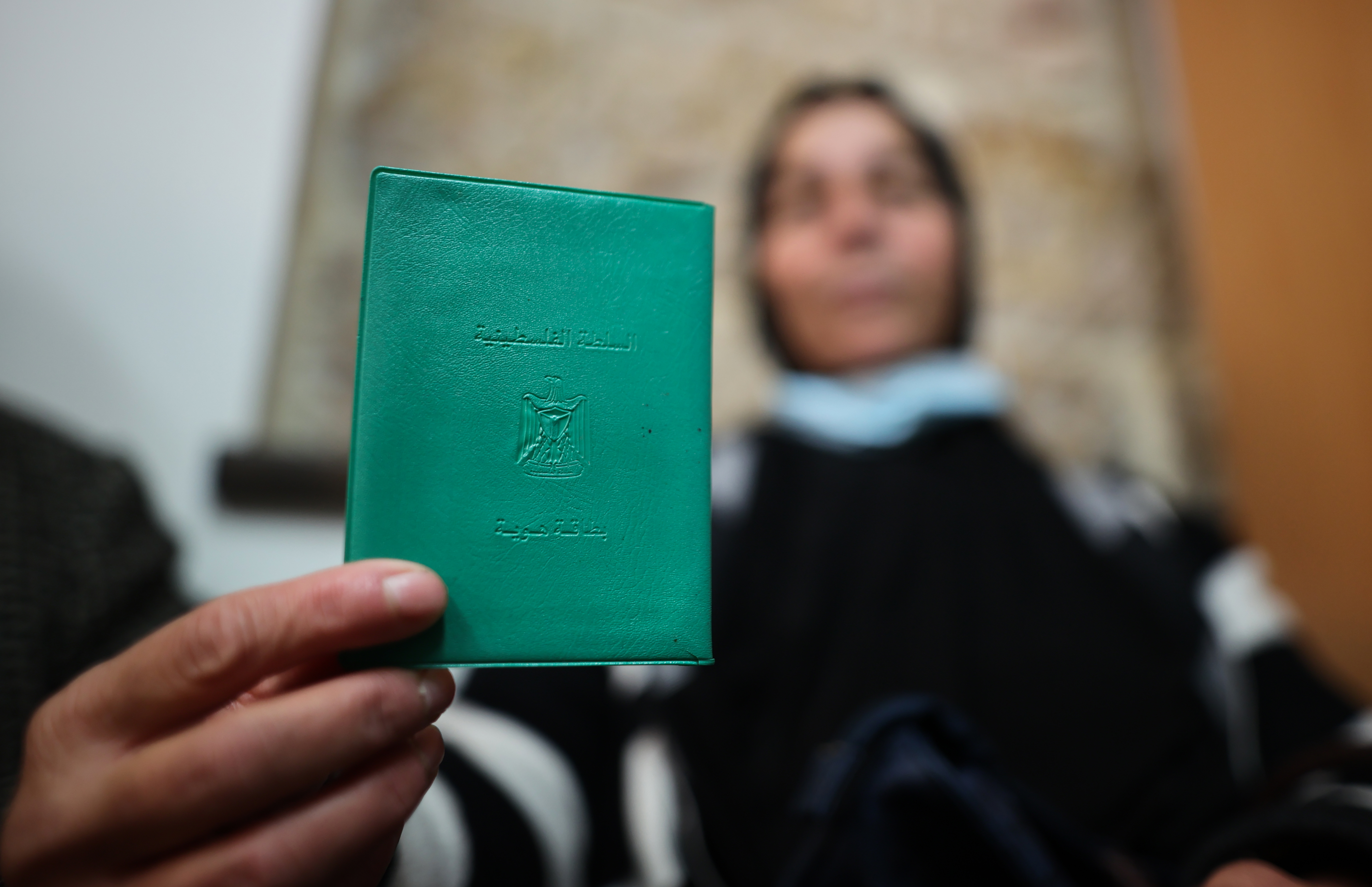- Thousands of Palestinian families suffer as a result of the Israeli “anti-unification” law
- Elderly Shweiki has been trying since 2007 to obtain permanent residency for his wife in Jerusalem
- Lawyer Rofa: In 2003, the Israeli Knesset passed the law and is now considering extending it

Palestinian Abdel Wahab Shweiki has been seeking since 2007 to obtain a residency card in East Jerusalem for his wife, Elaine, who is from the village of Salem in the Nablus governorate in the northern West Bank, but to no avail.
Since then, Shweiki, 78, and his wife, 49, have three children, all of whom have obtained permanent residency in Jerusalem. As for the wife, she has been denied residency and her husband has to renew her permit to stay in East Jerusalem, annually.
Immediately after their marriage, Shweiki was able to obtain an annual residency permit in Jerusalem for his wife, but so far he has not been able to obtain a permanent residency card for her, as a result of the Israeli “preventing family unification” law.
Israeli law considers the 360,000 residents of East Jerusalem to be “permanent residents” and obtain an Israeli identity that does not amount to a “nationality”, while the 1,800,000 Arab citizens of Israel have Israeli citizenship.
As for the Palestinians in the West Bank and Gaza Strip, before the establishment of the Palestinian Authority in 1994, they obtained residency cards from the Israeli military government, and after the establishment of the authority, their identities were issued by the Palestinian Ministry of Interior.
Since the beginning of the 1990s, Israel has imposed severe restrictions on the entry of Palestinians from the Gaza Strip and the West Bank to occupied East Jerusalem and Israel, except after obtaining special permits.
Palestinians who live in occupied East Jerusalem and Israel will suffer severely with their spouses if they decide to marry Palestinian men or women from the West Bank and Gaza Strip.
Gradual reunion

Raffoul Rofa, director of the Palestinian human rights organization “Saint Eve”, explains that if Al-Maqdisi wants to marry a Palestinian woman from Ramallah, for example, and wants to live in Jerusalem, he must submit a request for “unification” of the wife, which also applies to Al-Qudsiyah who marries someone from the West Bank.
He added, “Only in the nineties were Palestinian spouses from Jerusalem able to apply for family unification for their spouses living in the West Bank.”
However, Rofa, a Palestinian lawyer from the Old City of Jerusalem, added: “In the mid-nineties, the Israeli government introduced an amendment to the issue of family unification, and a new unification method was introduced, which is the gradual method.”
He explained that according to the gradual method, “anyone who holds Israeli citizenship or a permanent resident in East Jerusalem must apply for family unification for the husband or wife from the West Bank and Gaza Strip, and approval comes gradually, beginning with a 15-month permit, then a 12-month permit, then temporary residence, followed by permanent residence.” “.
He added: “Based on this amendment, if the husband or wife has Israeli citizenship, then the non-Israeli husband or wife obtains Israeli citizenship.”
Rofa continues: “At the time, family unification requests did not go through easily, but things became more complicated in 2002 after Israel said that people who had obtained family unification carried out operations against Israelis, and then the family unification process was frozen.”
Reunion Law
Lawyer Rofa explains that the Knesset (the Israeli parliament) issued in 2003 the law that was valid until July of last year 2021, which prohibits unification between Jerusalemites and those holding Israeli citizenship on the one hand, and spouses from the West Bank, Gaza Strip, Lebanon, Syria, Iraq and Iran, from On the other hand.
Rofa did not have an accurate estimate of the number of Palestinians who suffered as a result of this decision, but Israeli media reports spoke of 13,000 Palestinian families suffering as a result of the law preventing family unification.
As a result, many families have been dispersed and husbands are now living in one area and wives in another, and its effects have been reflected on the children whose parents are unable to register them in the civil registry, whether in East Jerusalem, Israel, the West Bank and the Gaza Strip.
Rofa said: “The law prohibiting family unification limits the registration of children in Jerusalem (..) There are cases of children born and raised in Jerusalem, but they are not registered and Israel considers their presence in the city illegal.”
In all cases, the applicant for a temporary or permanent residence permit or residence must submit a series of documents to prove his and his family’s residence in East Jerusalem.
He continued: “Residence in Jerusalem must be proven through the land tax bills (arnona – real estate tax), electricity and water, or proof of study in Jerusalem, a rental contract, or proof of ownership of a house in Jerusalem, and proof of obtaining dues from the Israeli National Insurance.”
He added: “Anyone who has a security ban (a file linked to the Palestinian resistance) or a criminal case, his transactions will be rejected.”
Failed to extend the law

The “Prohibition of Family Unification” law has been extended annually by the Knesset since 2003, but in July 2021 the Knesset failed to extend the law.
However, despite not extending it, Israeli and Palestinian human rights organizations said that the Israeli Interior Minister Ayalet Shaked refused to approve the family unification requests, which were submitted pending an opportunity to extend the law.
In this regard, Rofa said: “In July 2021, the Knesset refused to extend the effectiveness of the law preventing family unification, which opened an opportunity, and therefore since then we have sent messages to people to go to the Ministry of the Interior and submit requests for family unification.”
He added, “We told people that the Knesset did not agree to extend the law, and therefore, in principle, the legal situation returns to what it was before the law was enacted in 2003.”
And he continued: “Accordingly, any person who fulfills the conditions that existed before 2003 can apply for a temporary identity if he has a permit, or apply for a permanent identity, if he has a temporary identity.”
At the headquarters of the “St. Yves” Foundation in the Old City of East Jerusalem, dozens of citizens were arriving successively to submit applications.
Rofa said, “In the past few days, hundreds of people have approached us. We expect the Israeli Ministry of Interior to reject these requests, but in the event of rejection, it is possible to go to the competent court, with a legal claim that during the period in which these requests were submitted, it was not The law prohibiting family reunification is in effect.
On the other hand, the Israeli Minister of Interior is accelerating the pace to extend the law, as it was accepted by the Knesset in the first reading early this month, but it still has to be accepted in a second and third readings, before it becomes effective.
Hopes Hang

Shweiki, who is considered luckier than the thousands of Palestinians whose applications have been rejected, or even considered, hopes that during the period before the extension of the law, he will be able to obtain a permanent residency card for his wife.
He says, “I go to the Ministry of Interior every year with a lot of papers that include electricity and water bills, medical reports and property tax. As an elderly man with a paraplegia, I face difficulties.”
And he continues: “I am 78 years old, and if I die, who will take care of my wife and three children? (..)
I am afraid of this matter, as I do not want my wife to tire with the children, in case something happens to me.”

As for his wife, Eileen, she says she fears the future.
She adds, “I think about what will happen in the future. If something happens to my husband, I should be able to work to take care of the children. We have no one here and I have to rely on myself.”
Eileen points out that she did not expect that she would face this problem when she got married, and she was surprised by it, and she concluded her speech by saying: “God willing, our problem will end, and we will be able to move freely, this is what I hope.”
Shortlink for this post: https://daysofpalestine.ps/?p=15593






